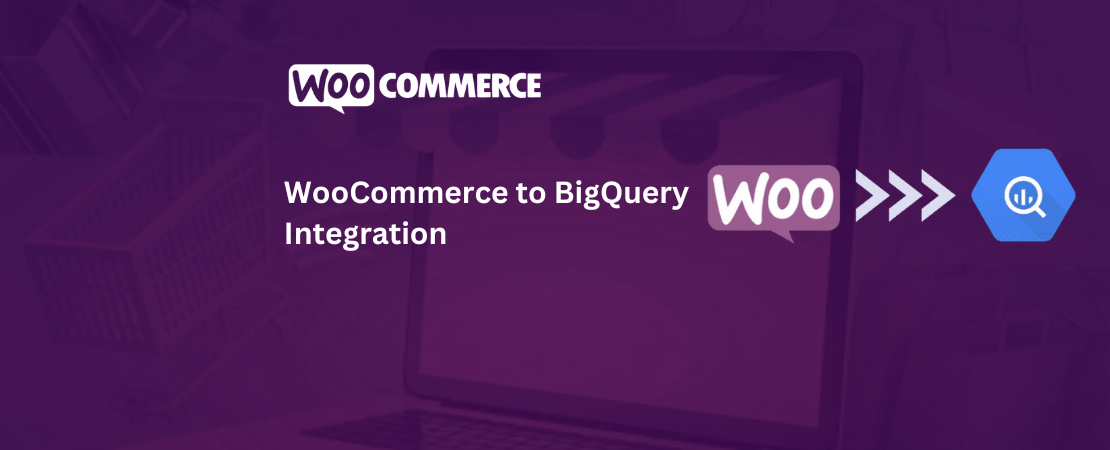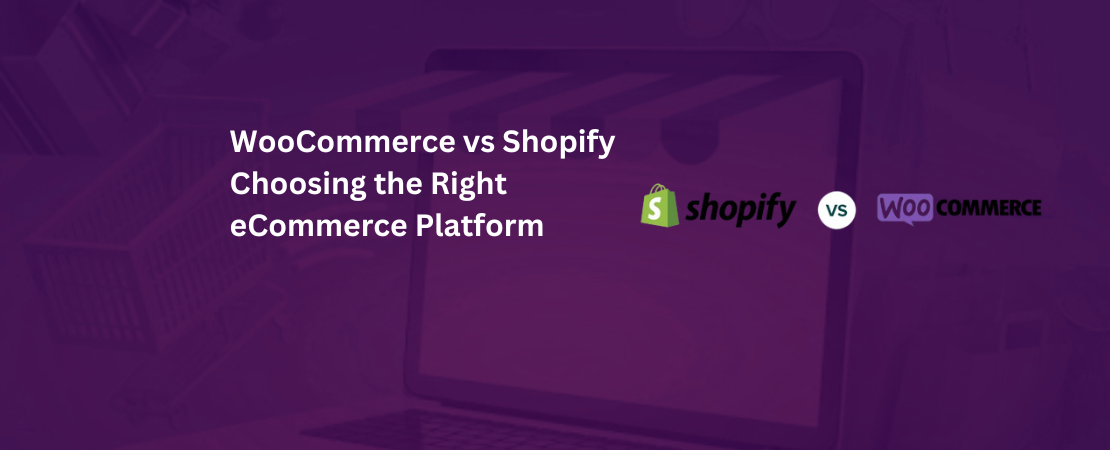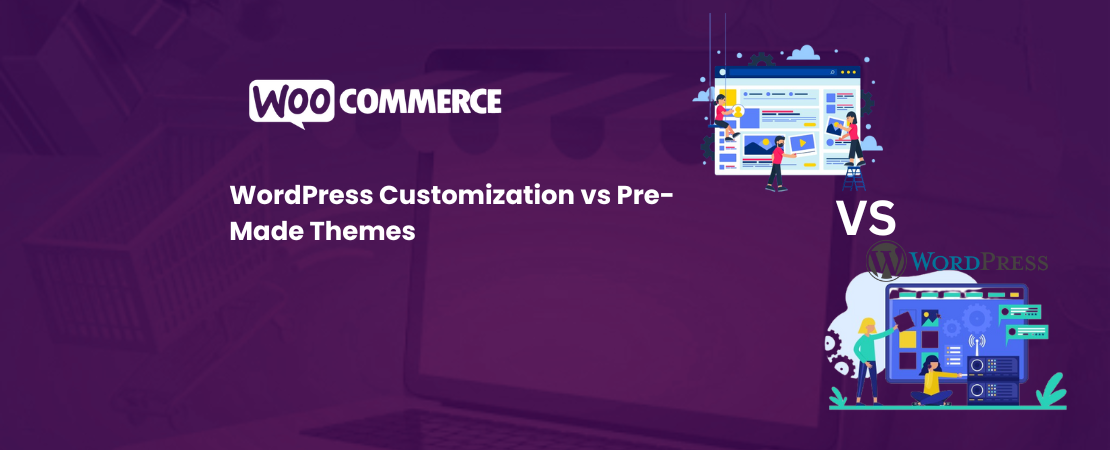Scaling an eCommerce business to enterprise levels demands a platform that can handle high traffic, complex operations, and seamless integrations.
WooCommerce, a widely used WordPress plugin, has long been a favorite for small to medium-sized businesses.
But can it meet the rigorous demands of large-scale enterprises?
With its open-source flexibility, extensive customization options, and a robust ecosystem of integrations, WooCommerce is a viable contender in the enterprise eCommerce space. Many enterprises enhance their online operations further by integrating WordPress ecommerce development services to build scalable, high-performance stores tailored to their business needs.
From handling vast product catalogs to integrating with advanced tools like ERP systems and CRMs, we’ll break down its capabilities, limitations, and real-world applications.
WooCommerce as an Enterprise Solution
Before assessing whether WooCommerce is a viable enterprise solution, we must understand how it operates as an e-commerce platform.
WooCommerce is a powerful open-source eCommerce plugin for WordPress that enables businesses to create and manage online stores.
Its open-source nature provides unparalleled flexibility, allowing enterprises to modify and customize their stores to meet specific needs.
With over 4 million active installations and a global market share of 23%, WooCommerce has established itself as a leading eCommerce platform for businesses of all sizes.
WooCommerce Features for Enterprise
Enterprise-level businesses need the right features before designing and deploying their sites to address complex needs and requirements.
The main WooCommerce features for enterprises include:
Inventory Management
Enterprises can manage extensive product catalogs with features like stock-level tracking, low-stock notifications, and bulk product editing.
It supports various product types, including physical, digital, and subscription-based products.
Enterprise-level businesses have massive product catalogs with several variations that must be labeled, organized, and made live to ensure customers find what they need, no matter how minuscule the item is. Working with a professional enterprise software development partner can help streamline this process by ensuring your systems are scalable, efficient, and tailored to complex catalog management needs.
Order Processing
WooCommerce simplifies order management by allowing businesses to add customer notes, mark orders as shipped, and efficiently manage refunds.
WooCommerce integrates with shipping carriers like FedEx and UPS for streamlined fulfillment.
Enterprise-level businesses handle large order volumes daily and need a platform that can process these orders in a well-organized and timely manner – BigCommerce can help with that.
Secure Payment Gateways
WooCommerce supports numerous payment gateways, including PayPal, Stripe, and Authorize.Net, ensuring secure transactions.
Enterprises can also add custom payment methods to cater to specific markets or business needs.
Following the e-commerce revolution, payment gateways have made great strides.
They have never been safer, smarter, or more accessible.
Third-party integrations and Plugins
BigCommerce boasts an extensive library of free and premium plugins that extend its functionality.
From marketing automation tools like Mailchimp to ERP integrations and advanced analytics, enterprises can tailor their stores for optimal performance.
Global Selling
WooCommerce supports multiple currencies, languages, and tax configurations, making it ideal for enterprises with international operations.
It also integrates with global shipping providers to simplify logistics for cross-border sales.
Can WooCommerce Handle Enterprise-Level Growth
The e-commerce model has been successful because it allowed businesses to scale operations without needing to rent more land, hire more staff, and wait for countless other nuances of brick-and-mortar stores.
E-commerce scalability refers to the platform’s ability to handle higher traffic, extensive product catalogs, and higher transaction volumes without performance compromises.
A scalable e-commerce solution ensures smooth operations during peak demand, such as flash sales or seasonal spikes, while maintaining fast load times and reliable uptime.
Moreover, scalability involves balancing operational costs with business growth, ensuring additional sales do not lead to disproportionately high expenses.
Technical Factors To Consider For Store Scalability
Here’s how to iron out the technicalities of WooCommerce store scalability:
Picking The Right Hosting Environment
Picking the right hosting is critical for scalability. Scalable hosting providers like WP Engine or cloud-based solutions offer resources that automatically adjust to traffic spikes.
Dedicated enterprise-grade servers can also handle high transaction volumes effectively.
You want a store that runs effortlessly and performs on low and high-volume days with the same efficiency and effectiveness.
Using a Content Delivery Network (CDN)
A CDN distributes content across multiple servers globally, reducing latency and improving site speed for users regardless of location.
Using a CDN is especially important for enterprises targeting international markets because it allows websites to load quicker from anywhere in the world.
Most enterprises have a global customer base and need to build an online store that makes them available to everyone.
Proper Database Optimization
Efficient database management ensures quick query processing even with large product catalogs or high transaction volumes.
Techniques include indexing tables, cleaning up unused data, and optimizing database structures to reduce server strain.
Using Caching Systems
Using reliable caching mechanisms reduces server load by temporarily storing frequently accessed data.
Tools like Redis or Varnish enhance performance during high-traffic periods by delivering pre-rendered pages to users instead of processing every request in real-time.
Once again, enterprise-level stores need to run as expected during the high and low season, wherever their customers access it.
The Advantages of Using WooCommerce for Large Businesses
All large businesses want tools and systems that help them improve their processes and boost profitability.
Here are all the ways that WooCommerce benefits large, enterprise-level businesses:
Flexible and Scalable Stores
- When optimized properly, WooCommerce is designed to scale with businesses, handling large product catalogs, high traffic, and significant transaction volumes without performance issues.
- WooCommerce supports diverse business models, allowing enterprises to sell physical goods, digital products, subscriptions, or external affiliate products.
- Flexibility and scalability are paramount for enterprise businesses to stay proactive instead of reactive.
Cost-Effectiveness
- The core WooCommerce plugin is free, making it a cost-effective solution for enterprises compared to proprietary platforms like Shopify Plus or Magento.
- Businesses can selectively invest in premium plugins, themes, or hosting services based on their specific needs, keeping overall costs manageable.
Store Customization and Extensibility
- Through its vast library of free and premium plugins and themes, WooCommerce offers limitless customization options.
- Enterprises can create tailored solutions that align with their unique branding and operational requirements.
- Developers can leverage the REST API to integrate WooCommerce with third-party tools like CRMs, ERPs, or marketing platforms
Seamless WordPress Integration
- WooCommerce integrates natively with WordPress, enabling businesses to combine powerful eCommerce functionality with WordPress’s robust CMS features.
- A WordPress integration allows content-rich customer experiences, such as blogs or guides, that complement the shopping journey.
Global Selling Capabilities
- WooCommerce supports multi-currency functionality, tax configurations, and multilingual options, making it ideal for enterprises operating in international markets.
- WooCommerce integrates with global shipping providers and payment gateways to streamline cross-border transactions.
SEO Friendly Platform
- Built on WordPress, WooCommerce inherits its SEO advantages, helping enterprises rank higher on search engines.
- Features like customizable URLs, meta descriptions, and product reviews enhance visibility.
Security and Store Updates
- WooCommerce is regularly updated to address vulnerabilities and stay aligned with cybersecurity standards.
- Enterprises can enhance security by implementing SSL certificates, two-factor authentication, and secure payment gateways.
Store Performance Optimization
- Enterprises can achieve fast load times by combining WooCommerce with performance-optimized hosting solutions and caching systems.
- Tools like CDNs and database optimization plugins ensure smooth operations during peak traffic.
Extensive Plugin Ecosystem
- WooCommerce has plugins for inventory management, marketing automation (e.g., Mailchimp), advanced analytics (e.g., Google Analytics), and more.
- The right plugins help streamline operations while enhancing customer experience.
Comparing WooCommerce With Other Enterprise Solutions
A fair assessment of WooCommerce would be incomplete without comparing it to its closest competition: Shopify Plus, BigCommerce, and Magento.
This table compares all four across various essential criteria:
| Feature/Aspect | WooCommerce | Shopify Plus | BigCommerce | Magento (Adobe Commerce) |
|---|---|---|---|---|
| Cost | Free core plugin; costs arise from hosting, premium plugins, developer fees | High fees ($2,000+/month), includes hosting and support | Subscription-based, starting at $399/month for enterprise plans | High upfront costs for setup; licensing starts at $22,000/year |
| Customization | Fully customizable via plugins, themes, and custom code | Limited customization due to proprietary structure | Moderate customization with built-in tools and APIs | Highly customizable but requires expert developers |
| Hosting | Self-hosted; requires a separate hosting provider (e.g., WP Engine) | Fully hosted; server management included | Fully hosted; scalable infrastructure provided | Self-hosted or Adobe-managed hosting available at an additional cost |
| Scalability | Scalable with proper optimization (e.g., CDN, caching) | Automatically scales with traffic but has less control over infrastructure | Scales well for large catalogs and high traffic volumes | Highly scalable but resource-intensive to manage |
| Ease of Use | Steeper learning curve; requires technical expertise | User-friendly with minimal technical skills needed | Moderate learning curve; easier than WooCommerce but less intuitive than Shopify | Complex interface; requires experienced developers |
| SEO Capabilities | Excellent SEO tools via WordPress integration (e.g., Yoast SEO) | Good SEO features; less flexible than WooCommerce | Decent SEO options but not as robust as WooCommerce or Magento | Advanced SEO tools available; requires technical configuration |
| Payment Options | Supports multiple gateways (PayPal, Stripe, etc.); no transaction fees | Built-in payment gateway with transaction fees unless using Shopify Pay | Extensive payment options with no additional transaction fees | Wide range of payment integrations available without extra fees |
| Multi-Channel Selling | Requires plugins for multi-channel integration (e.g., Amazon, eBay) | Built-in multi-channel selling features (e.g., social media platforms) | Strong multi-channel capabilities out of the box | Custom integrations required for multi-channel selling |
| Performance | Dependent on hosting and optimization strategies (e.g., caching) | Fast and reliable due to hosted infrastructure optimized by Shopify | Good performance with enterprise-grade hosting included in plans | High performance achievable but requires significant server resources |
| Support & Maintenance | Community-driven support; premium support available via managed services | 24/7 dedicated support included in subscription plans | Dedicated support included in enterprise plans | Enterprise-level support available at an additional cost |
Challenges and Limitations of Using WooCommerce for Enterprises
While there’s a lot that enterprises can benefit from WooCommerce, it’s not without its challenges and limitations.
These are all the ways that WooCommerce is limited for enterprise-level businesses:
Store Performance Issues with Large Product Catalogs
- WooCommerce does not impose a hard limit on how many products can be listed on their store.
- Large catalogs strain server resources, resulting in slow load times and degraded user experience if not optimized properly.
- Extensive product data management requires efficient database optimization, which can be challenging for enterprises without technical expertise
Strong Dependency On The Right Hosting
- WooCommerce performance and scalability depend on the hosting provider.
- Low-quality hosting services fails to handle increased traffic or order volumes, resulting in poor website performance.
- Enterprises need to invest in high-performance hosting solutions, drastically increasing operational costs.
Steep Learning Curve
- Enterprises will find it challenging to navigate the platform’s vast library of plugins and extensions without technical expertise.
- Non-technical users face difficulties in customizing their stores or troubleshooting issues, necessitating the hiring of professional developers
Hidden Costs
- While WooCommerce is free to use, most enterprises often incur additional costs for premium plugins, advanced themes, and optimized hosting solutions.
- These expenses can add up quickly, making the platform less cost-effective for businesses with limited budgets.
Compatibility Issues and Plugin Dependency
- WooCommerce relies on plugins for extended functionality. However, using too many plugins can strain server resources and lead to compatibility issues during updates.
- Frequent updates to WordPress, WooCommerce, or PHP versions may disrupt plugin compatibility, causing downtime or functionality loss
Security and Maintenance Concerns
- Being open-source, WooCommerce requires regular maintenance to ensure security and optimal performance.
- Enterprises must address vulnerabilities through updates and monitoring.
- Without proactive management, stores may become susceptible to cyberattacks or data breaches.
Limited Enterprise Compatible Features
- Unlike enterprise-grade platforms such as Bigcommerce or Magento, WooCommerce lacks certain out-of-the-box features like advanced analytics, multi-store management, or built-in scalability tools.
- Enterprises often need to rely on third-party solutions to fill these gaps.
Final Thoughts
However, enterprises struggling with scalability or plugin dependency can explore professional woocommerce to shopify migration services to transition smoothly to a more robust and fully hosted platform that supports enterprise-level growth.
It’s not a one-size-fits-all solution, and enterprises must carefully weigh its flexibility and cost-effectiveness against the out-of-the-box features offered by proprietary platforms.
Smart choices in hosting, extensions, and development expertise will unlock WooCommerce’s potential for enterprise-level performance.
For enterprises seeking agility, customization, and control, WooCommerce provides a powerful foundation.
By carefully addressing its limitations with the right strategies, large businesses can leverage WooCommerce to build a thriving and scalable online presence.
FAQs
Can WooCommerce handle 50,000 products?
Yes, WooCommerce can handle 50,000 products with proper hosting and optimization. Use a fast server and good plugins for smooth performance.
What are the limitations of WooCommerce?
WooCommerce needs WordPress, so it’s less standalone than other platforms. It may slow down with many products without strong hosting.
Is WooCommerce better than Shopify?
WooCommerce is better for control and lower costs if you manage tech yourself. Shopify is easier but costs more with less flexibility.



